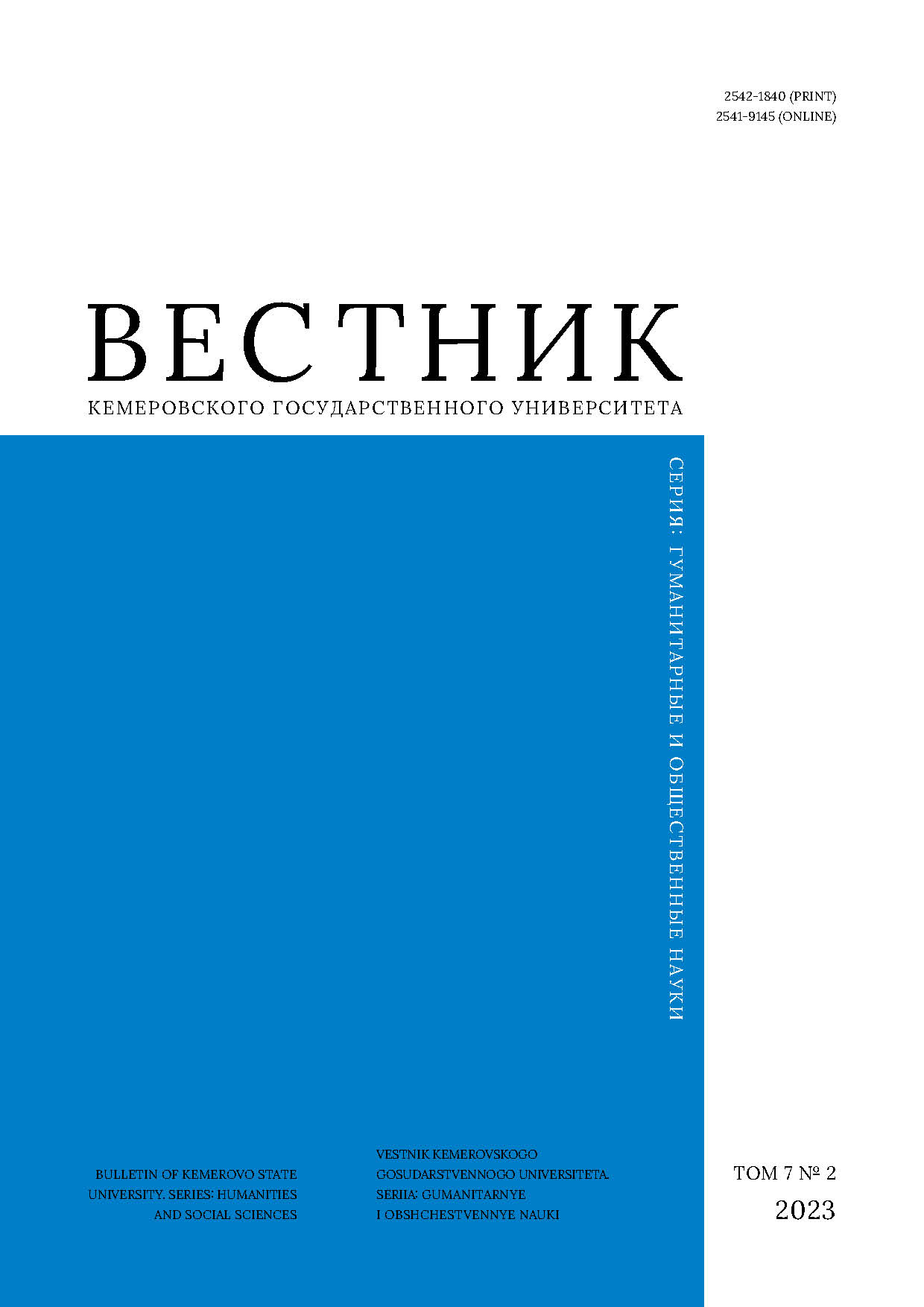Kemerovo, Russian Federation
Kemerovo, Russian Federation
Kemerovo, Russian Federation
The research identified and described the correlation between the nervous system and the cognitive profile in foreign university students. The quantitative properties of cognitive functions included short-term memory, concentration, and combinatorial thinking. The indicators and their neurodynamic features were subjected to an integrated cognitive approach. The neurodynamic indicators included the rate of simple visual-motor reaction, functional mobility of nervous processes, equilibrium of the nervous system in response to a moving object, and nervous system stability in terms of brain performance. Unlike the Russian control group, the foreign students demonstrated a slow inhibition – excitation cycle and a poor visual memory for numbers and words. The control group had a stronger nervous system with a higher degree of activation. In the test group, the cognitive functions depended on the expression degree of nervous processes. Students with a weaker nervous system demonstrated a lower level of simple and complex visual-motor reaction and functional mobility of nervous processes: they made more errors in the test tasks. Those with a stabler nervous system showed better combinatorial thinking abilities and concentration. The indicators of mechanical and semantic memory did not correlate with the nervous system stability.
cognitive functions, transversal cognitive processes, working capacity, nervous system characteristics, neurodynamic characteristics
1. Velichkovsky B. M. Cognitive science. Fundamentals of epistemic psychology. 2th ed. Moscow: Iurait, 2020, vol. 1, 405. (In Russ.) https://www.elibrary.ru/nbmekf
2. Vygotsky L. S. Lectures on psychology. Thinking and speech. Moscow: Iurait, 2020, 432. (In Russ.) https://www.elibrary.ru/oojgvx
3. Vekker L. M. Mind and reality: unified theory of mental processes. Moscow: Smysl, 1998, 670. (In Russ.)
4. Leontiev A. N. Development of memory: An experimental study of higher psychological functions. Moscow-Leningrad: Uchpedgiz, 1931, 278. (In Russ.)
5. Rubinstein A. N. Fundamentals of general psychology. St. Petersburg: Piter, 2013, 397. (In Russ.) https://www.elibrary.ru/rcccmj
6. Anderson J. R. Cognitive psychology. 5th ed. St. Petersburg: Piter, 2002, 496. (In Russ.) https://www.elibrary.ru/sonudb
7. Solso R. Cognitive psychology. 6th ed. St. Petersburg: Piter, 2006, 589. (In Russ.) https://www.elibrary.ru/qxntbh
8. Druzhinin V. N. Cognitive abilities: structure, diagnosis, and development. Moscow: Per se; St. Petersburg: IMATON-M, 2001, 224. (In Russ.) https://www.elibrary.ru/rxnawj
9. Kornienko A. F. Essence of thinking processes and thinking activity. Nauchnyi dialog, 2013, (4): 49-62. (In Russ.) https://www.elibrary.ru/qazxuf
10. Yakovlev B. P., Pribega A. V. The role of cognitive psychology in the system of scientific knowledge about a human being. Gumanizatsiia obrazovaniia, 2017, (5): 15-21. (In Russ.) https://www.elibrary.ru/zwpxwr
11. Nemirovskaya N. G. V. N. Druzhininʼs approach to the intelligence problem: conception of "cognitive resource" and a model of "intellectual range". Yaroslavl pedagogical bulletin, 2014, 2(3): 206-211. (In Russ.) https://www.elibrary.ru/strhjj
12. Reshetova T. V., Zhigalova T. N., Gazieva A. A. Reducing anxiety without deterioration of cognitive functions. Eksperimental'naya i Klinicheskaya Gastroenterologiya, 2013, (11): 21-25. (In Russ.) https://www.elibrary.ru/sbeoql
13. Padun M. A. Cognitive style and depression. Experimental Psychology (Russia), 2009, 2(4): 81-90. (In Russ.) https://www.elibrary.ru/lafenb
14. Makarova N. G. Identification of the attention concentration degree of students of different specialties: theory and practice. Fundamentalnye i prikladnye issledovaniia: problemy i rezultaty, 2013, (3): 88-92. (In Russ.) https://www.elibrary.ru/rdmqvf
15. Nurova M. A., Mamedova L. V. Classification of memory types and their characteristics. Herald of Science and Education, 2020, (21-1): 55-58. (In Russ.) https://elibrary.ru/pzttiq
16. Pavlenko E. K. Memory, logic, attention. Moscow: Mir knigi, 2011, 64. (In Russ.)
17. Zimin O. A. Memory development. Prioritetnye nauchnye napravleniia: ot teorii k praktike, 2015, (18): 39-45. (In Russ.) https://elibrary.ru/uhaken
18. Varich L. A. Peculiarities of psychophysiological adaptation of students to training conditions with different levels of motor activity. Cand. Biol. Sci. Diss. Kemerovo, 2004, 145. (In Russ.) https://elibrary.ru/nnfalr
19. Ilyin E. P. Guidelines for learning on psychophysiology. Leningrad: LSPI, 1981, 87. (In Russ.) https://www.elibrary.ru/vigxqz
20. Rakhimbaeva A. K. Psychological essence of thinking and its specificity. Mezhdunarodnyi zhurnal gumanitarnykh i estestvennykh nauk, 2019, (2-1): 44-47. (In Russ.) https://doi.org/10.24411/2500-1000-2019-10529
21. Kazin E. M., Fedorov A. I., Sviridova I. A., Shinkarenko A. S., Averianova N. V., Lyubchenko S. A., Maksimova T. Yu. Age and typological features of school students' characteristics the adaptation of children under the action of educational and social and health factors.Vestnik Kemerovskogo gosudarstvennogo universiteta, 2015, (2-1): 119-124. (In Russ.) https://www.elibrary.ru/tnpzkh


















